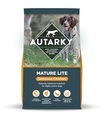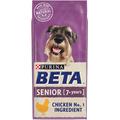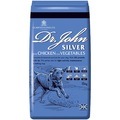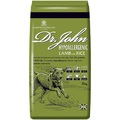Just like people, older dogs often need a little more care. More prone to weight gain, illnesses and forgetfulness, they require plenty of love and support as they age. In addition to a little extra TLC from their beloved owner, older pooches also need a great deal of understanding.
Indeed, you will not only need to keep your eyes peeled for the early signs of health issues, but also understand that poor behaviour can sometimes result from illness or a worsening memory, and that you may need to make changes to your routine or your home in order to accommodate your pet.
Here are a few useful tips for looking after older dogs.
1) Know what to expect
Being prepared for the challenges of ageing is one of the best ways to ensure your faithful friend has everything he needs as he gets older.
In many ways, dogs age similarly to humans; they may become more forgetful, their weight could go up or down, they will become less energetic, they will be more prone to illness, and you may even notice the odd grey hair! You might also notice changes in behaviour - your pet could crave more affection, or seem to develop a few bad habits. These changes can just occur naturally with ageing, but they can also be a sign of illness, so take your pet to the vet if you are concerned.
It's also important to bear in mind that different breeds of dog reach old age at different times. Typically, the larger the dog, the younger they will be when they reach 'old age'.
2) Be ready to make changes to your dog's diet and exercise
It's not just humans who are susceptible to the middle-aged spread; dogs are too. As your dog ages, he will become less energetic, meaning he burns fewer calories. As a result, older dogs often put on weight. That said, age can also bring with it digestive troubles and dental problems, which may mean your dog loses weight.
Both losing and gaining weight benefit from veterinary attention; if your pooch is losing weight, it is likely to be essential. Your vet will be able to advise you on how to get your dog back to a healthy weight; foods specially formulated for older dogs can help to maintain a healthy weight in the first place.
Exercise is just as important as when your dog was a bouncy young pup - but he is likely to be unable to manage as much as he used to. Aim for shorter, regular walks that maintain your dog's mobility without over-taxing him.
3) Visit the vet regularly
Health check-ups are important for older pooches; a lot can change in just a few months. Your vet will be keen to keep an eye on your dog's weight, mobility and overall health to spot any issues before they develop into something more serious.
Of course, if you notice anything unusual - your dog eating less, for example, or seeming lethargic - don't wait for a regular check-up to visit the vet. Make sure you take him straight away to see if there's a problem.
4) Look out for arthritis
Like obesity, arthritis is a common problem. As in humans, it can cause a lot of discomfort, so be familiar with the signs and be ready to make changes to your home and the way you treat your pet to accommodate it. For instance, if you have stairs to your front door, adding a ramp for your dog (or carrying him inside) may save him pain.
The signs of arthritis include stiffness, particularly after long periods of rest, a lack of eagerness to exercise, persistently licking joints, and perhaps even a spot of grumpiness. If you suspect your dog has arthritis, take him to a vet for a diagnosis. Your vet will also be able to advise you on the best treatment options; while there is no cure for arthritis, there are plenty of medications and lifestyle changes that can allow your dog to lead a happy life.
5) Ensure your dog has a comfy environment
Pay close attention to your pooch's environment as he ages. A comfy bed, away from drafts and neither too hot nor too cold will go a long way to keeping him happy and maintaining his overall wellbeing.
Make sure that he has the opportunity to relieve himself more often than usual, as bladder function can often decline with age; this is a particular problem for females, and in either sex means it's best not to leave them alone for long periods.
6) Give your dog some mental stimulation
While we're all familiar with the phrase 'You can't reach an old dog new tricks', you most certainly can - and it's beneficial to do so. Keeping your pet engaged with the world around him is key, so take the time to buy him new toys, or teach him new tricks and games whenever you can.
Written by: Hannah








